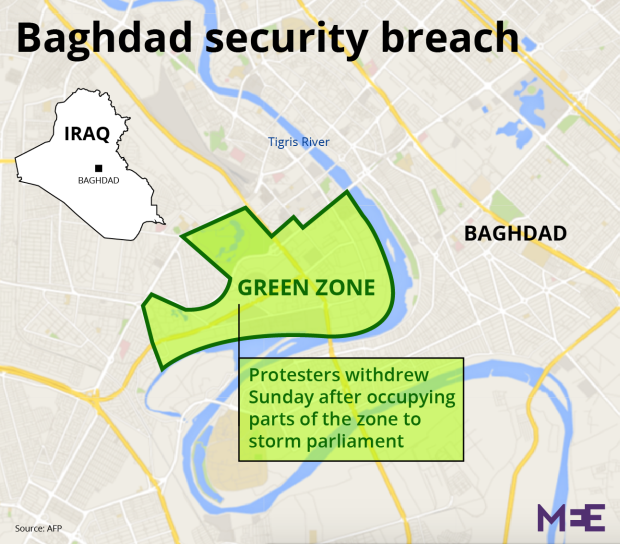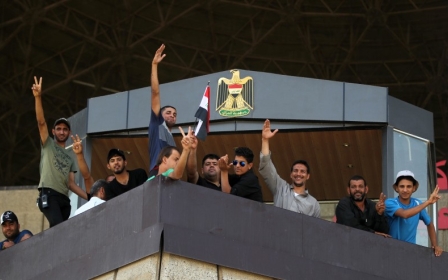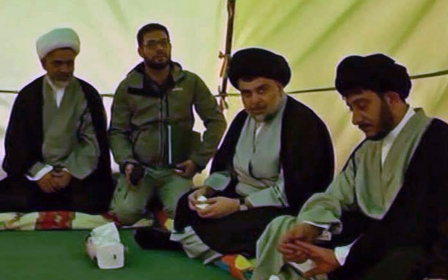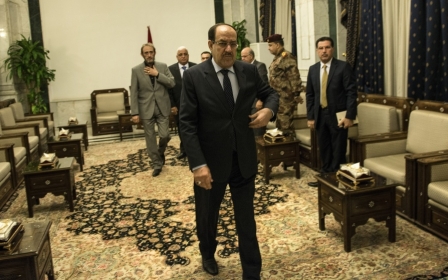Protesters quit Baghdad's Green Zone after unprecedented breach
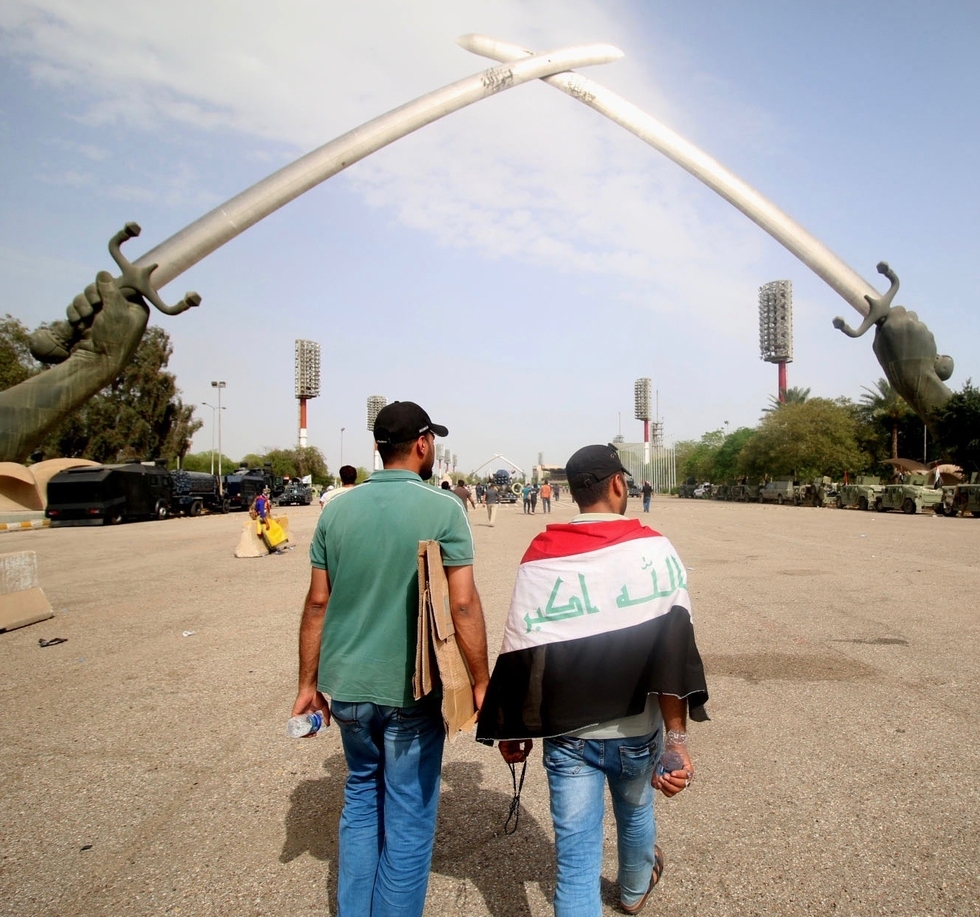
Protesters were withdrawing from Baghdad's Green Zone on Sunday after breaking into the fortified area and storming Iraq's parliament in an unprecedented security breach the day before.
"The protest organising committee announces the withdrawal of the demonstrators from the Green Zone," it said in a statement, citing respect for a major Shia pilgrimage as the reason for their departure.
The statement was distributed by the office of Shia cleric Moqtada al-Sadr, whose supporters make up the vast majority of the demonstrators.
Demonstrator Hussein al-Ali said that the announcement to withdraw was made at the square where protesters had gathered, and that they accepted it and complied.
Protesters pulled down or scaled slabs of heavy concrete blast wall on Saturday to enter the Green Zone, where Iraq's main government institutions are located, the culmination of weeks of political turmoil and inaction by parliament.
Some remained overnight, and hundreds of people combined a festive demonstration with sight-seeing in the previously off-limits area on Sunday.
Protesters waving flags clapped and chanted slogans in front of a grandstand from which Saddam Hussein once delivered addresses, in a square bordered by giant statues of twin-crossed swords held in hands said to have been modelled on Saddam's own.
Powerful groups refuse change
Many Iraqis believe the crisis has unveiled deep divisions between the Shia political parties that could lead to armed confrontation between Shia brigades that were formed after the collapse of large units of the Iraqi army in the summer of 2014, the BBC said.
In parliament, some leading Shia parties have locked horns over their share in the new cabinet line-up, the BBC said. Many prominent Shia politicians, like former Prime Minister Nouri Maliki, are highly critical of Shia cleric-turned-politician Sadr. Maliki said change could not be achieved through "intimidation or the occupation of the Green Zone". Many Shia Iraqis consider Sadr a leader for their uprising.
Fear of a rift between Shia factions will stoke instability in Iraq, which is already at war with the Islamic State (IS) group. And the crisis will alarm key allies like the US, which count on a stable, strong government to defeat the militant group.
Supporters of Sadr want MPs to replace politically affiliated ministers with non-partisan, unelected officials.
Powerful blocs in parliament have refused to approve that change for weeks.
Parallel world
The Green Zone breach allowed Iraqis access to places they have rarely if ever been able to enter before.
"This is the first time I've been here since I came with my school under Saddam," said 32-year-old Yusef al-Assadi, who took a "selfie" in front of the monument to the unknown soldier.
Assadi said it was striking "how rich this place is. Here, there is air conditioning and electricity everywhere, but the people of Iraq suffer from power cuts all the time."
Many Iraqi politicians live in luxury, while most average citizens make do with abysmal services that include only a few hours of government-provided electricity per day at the height of summer.
Prime Minister Haider al-Abadi's office said he had ordered the pursuit of people involved in attacks or vandalism, but security forces were not taking action against protesters inside the Green Zone on Sunday.
Protesters on Saturday attacked at least one MP as well as cars they believed belonged to lawmakers, and broke into offices in parliament.
But others sought to contain the destruction, and many were content to take photographs of themselves in parliament, with some sitting in seats usually occupied by lawmakers.
The protesters broke into the Green Zone on Saturday afternoon after the MPs had once again failed to approve the new ministers to replace the current party-affiliated cabinet.
Both Abadi and Sadr have called for the change, but political blocs that rely on control of ministries for patronage and funds have consistently opposed it.
Failure of leaders, system
"Even the most sectarian of Iraqis are seeing the failure of their leaders and their system," said Patrick Skinner, a former CIA case officer who is now with the Soufan Group consultancy.
"The question might not be 'why now' as it relates to the anger, but 'why it took so long'. Their system is not working," he said.
Parliament approved some of Abadi's nominees earlier in the week, but "they were replacing figures who were easy to replace," said Kirk Sowell, a Jordan-based political risk analyst who is the publisher of Inside Iraqi Politics.
"Abadi just looks more and more impotent... He is just very weak. He will not be impeached. But he is being made less relevant by the day," Sowell said.
Baghdad security forces were already on high alert prior to the storming of parliament amid the annual commemoration of Imam Musa Kadhim's death, which sees tens of thousands of Shia faithful walk to a shrine in northern Baghdad.
New MEE newsletter: Jerusalem Dispatch
Sign up to get the latest insights and analysis on Israel-Palestine, alongside Turkey Unpacked and other MEE newsletters
Middle East Eye delivers independent and unrivalled coverage and analysis of the Middle East, North Africa and beyond. To learn more about republishing this content and the associated fees, please fill out this form. More about MEE can be found here.


